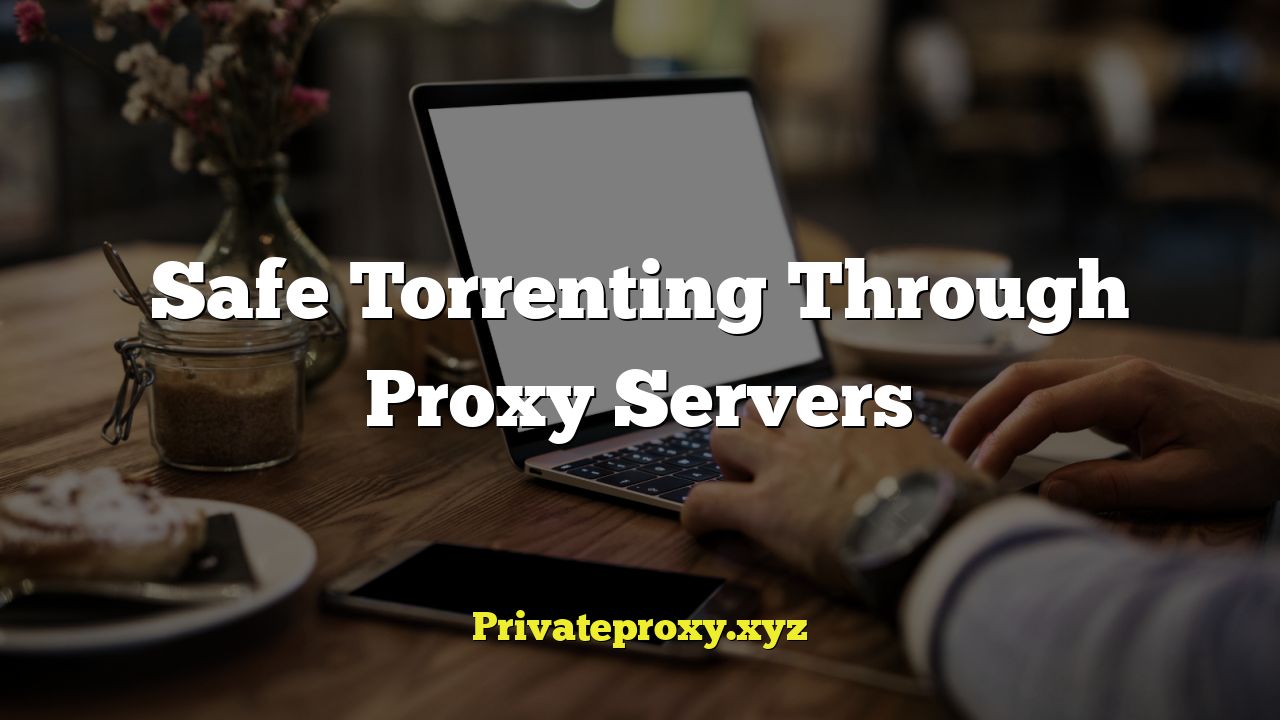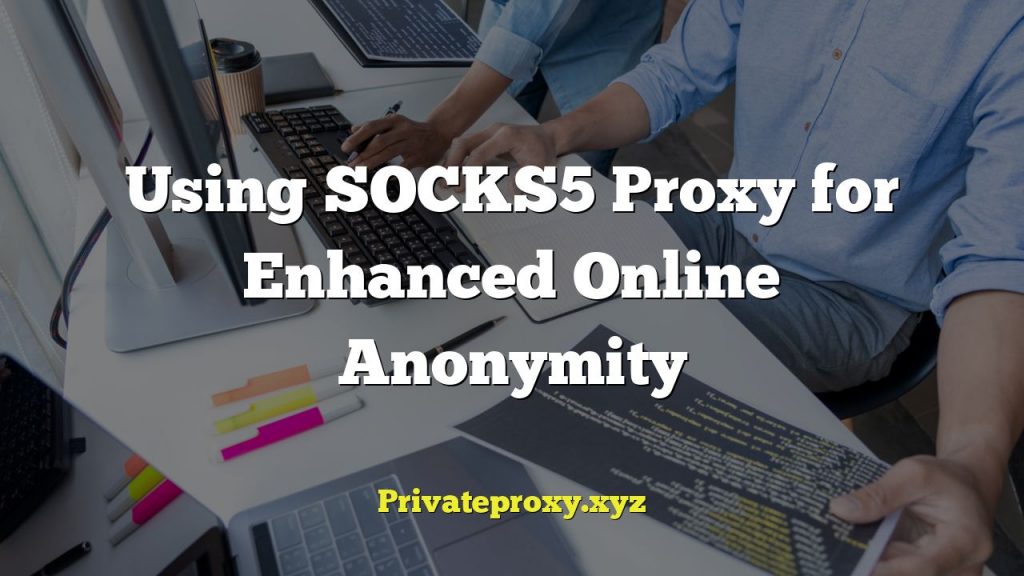
Understanding Torrenting and Its Risks
Torrenting, or peer-to-peer (P2P) file sharing, is a popular method for distributing and downloading files over the internet. It works by breaking files into smaller pieces and sharing these pieces among multiple users simultaneously. While torrenting itself isn’t illegal, downloading or sharing copyrighted material without permission is a violation of copyright law. Beyond legal concerns, torrenting also presents several security risks.
- Exposure to Malware: Torrent files can be disguised to contain malicious software, such as viruses, trojans, and ransomware. Downloading infected torrents can compromise your device and data.
- IP Address Exposure: When you participate in torrenting, your IP address becomes visible to other users in the swarm. This can be used to track your online activity, potentially exposing you to unwanted surveillance or targeted attacks.
- ISP Monitoring and Throttling: Internet Service Providers (ISPs) often monitor torrenting activity. If they detect excessive downloading or uploading, they may throttle your internet speed or even issue warnings.
- Legal Consequences: Downloading copyrighted material can result in legal notices, fines, or even lawsuits from copyright holders.
What is a Proxy Server?
A proxy server acts as an intermediary between your computer and the internet. Instead of connecting directly to websites or online services, your traffic is routed through the proxy server. This server then forwards your requests on your behalf and relays the responses back to you.
- Hiding Your IP Address: One of the primary functions of a proxy server is to mask your real IP address with its own. This makes it difficult for websites and online services to identify your true location.
- Bypassing Restrictions: Proxy servers can be used to bypass geographical restrictions and access content that is blocked in your region.
- Improving Security: By acting as a buffer between your device and the internet, proxy servers can help protect against certain types of online attacks.
- Caching Content: Some proxy servers cache frequently accessed content, which can speed up browsing by reducing the need to download the same data multiple times.
Types of Proxy Servers
There are several types of proxy servers, each with its own characteristics and level of security.
- HTTP Proxies: HTTP proxies are designed for web traffic (HTTP and HTTPS). They are commonly used for browsing the internet and accessing web-based services. They typically do not encrypt traffic.
- SOCKS Proxies: SOCKS proxies are more versatile than HTTP proxies and can handle any type of network traffic, including torrenting. SOCKS5 proxies offer better security and performance compared to older SOCKS versions. They support various authentication methods and can encrypt traffic, depending on the configuration.
- Transparent Proxies: Transparent proxies do not hide your IP address. They are often used by ISPs or network administrators for caching content or filtering web traffic. They are not suitable for protecting your privacy during torrenting.
- Anonymous Proxies: Anonymous proxies hide your IP address but identify themselves as proxies. This provides some level of anonymity but may still raise suspicion.
- Elite Proxies: Elite proxies hide your IP address and do not identify themselves as proxies. They offer the highest level of anonymity.
Benefits of Using a Proxy for Torrenting
Using a proxy server while torrenting offers several significant benefits.
- IP Address Masking: A proxy server hides your real IP address, making it difficult for copyright holders, ISPs, or other users to track your torrenting activity back to you.
- Enhanced Privacy: By routing your traffic through a proxy server, you can protect your privacy and prevent your ISP from monitoring your torrenting habits.
- Bypassing ISP Throttling: Some ISPs throttle torrenting traffic to conserve bandwidth. A proxy server can help you bypass this throttling by masking your traffic and making it appear as regular web traffic.
- Improved Security: A proxy server can act as a buffer between your device and the torrent swarm, protecting you from malicious peers who might try to exploit vulnerabilities in your system.
Choosing the Right Proxy Server for Torrenting
Selecting the right proxy server is crucial for ensuring both security and performance. Here are some factors to consider:
- SOCKS5 Proxy: Opt for a SOCKS5 proxy server, as it supports all types of traffic and offers better security and performance compared to HTTP proxies.
- Reputable Provider: Choose a reputable proxy provider with a proven track record of reliability and security. Read reviews and compare different providers before making a decision.
- Encryption: Ensure that the proxy server supports encryption to protect your data from interception.
- Server Location: Consider the location of the proxy server. A server located closer to you will generally provide better performance. However, a server located in a country with strong privacy laws may offer greater protection.
- Logging Policy: Check the proxy provider’s logging policy. Choose a provider that does not log your traffic or personal information.
- Speed and Bandwidth: Look for a proxy server with sufficient speed and bandwidth to handle torrenting traffic without significant slowdowns.
- Authentication: Choose a proxy server that requires authentication (username and password) to prevent unauthorized access.
- Cost: Proxy server services range from free to paid. Free proxies are often unreliable and may have security vulnerabilities. Paid proxies typically offer better performance, security, and reliability.
Setting Up a Proxy Server for Torrenting
Setting up a proxy server for torrenting involves configuring your torrent client to use the proxy server. The exact steps may vary depending on the torrent client you are using, but the general process is similar.
- Obtain Proxy Server Details: Get the proxy server address, port number, username, and password from your proxy provider.
- Configure Your Torrent Client: Open your torrent client (e.g., qBittorrent, Transmission, uTorrent).
- Access Proxy Settings: Navigate to the settings or options menu. Look for a section related to “Connections,” “Proxy,” or “Network.”
- Enter Proxy Details: Enter the proxy server address, port number, username, and password in the appropriate fields.
- Select Proxy Type: Choose the correct proxy type (usually SOCKS5).
- Enable Proxy: Make sure the proxy server is enabled in the torrent client settings.
- Apply Changes: Save the changes and restart your torrent client.
- Test the Proxy: Verify that the proxy server is working correctly by checking your IP address while torrenting. You can use online IP address checkers to confirm that your real IP address is hidden.
Here are specific instructions for popular torrent clients:
qBittorrent:
- Go to Tools > Options > Connection.
- Under “Proxy Server,” select “Type” as SOCKS5.
- Enter the “Host” (proxy server address) and “Port.”
- Check “Use proxy for peer connections” and “Use proxy only for torrents.”
- If required, enter the “Username” and “Password.”
Transmission:
- Go to Edit > Preferences > Network.
- Under “Peer Listening,” check “Use a proxy.”
- Select “Proxy type” as SOCKS5.
- Enter the “Proxy address” and “Proxy port.”
- If required, enter the “Username” and “Password.”
uTorrent:
- Go to Options > Preferences > Connection.
- Under “Proxy Server,” select “Type” as SOCKS5.
- Enter the “Proxy” (proxy server address) and “Port.”
- If required, enter the “Username” and “Password.”
- Check “Use proxy for peer connections,” “Use proxy for hostname lookups,” and “Disable all local DNS lookups.”
Potential Issues and Troubleshooting
Even with a properly configured proxy server, you may encounter some issues while torrenting. Here are some common problems and their solutions:
- Slow Download Speeds: Slow download speeds can be caused by a number of factors, including a slow proxy server, network congestion, or limited bandwidth. Try switching to a different proxy server or upgrading to a faster proxy plan.
- Connection Errors: Connection errors can occur if the proxy server is down or if there is a problem with your internet connection. Check the status of the proxy server and your internet connection.
- IP Address Leakage: In some cases, your real IP address may still be visible even when using a proxy server. This can be caused by misconfigured torrent client settings or a faulty proxy server. Double-check your torrent client settings and ensure that the proxy server is working correctly. Use an IP leak test website while torrenting to confirm your IP is masked.
- Proxy Server Blocking: Some websites or torrent trackers may block proxy server IP addresses. If this happens, try using a different proxy server.
- Authentication Problems: If you are having trouble authenticating with the proxy server, double-check your username and password. Make sure that you are using the correct authentication method (e.g., username/password, IP authentication).
Combining Proxy Servers with VPNs
For enhanced security and privacy, you can combine a proxy server with a Virtual Private Network (VPN). A VPN encrypts all of your internet traffic and routes it through a secure server, providing an additional layer of protection.
- Increased Security: A VPN encrypts your traffic, making it more difficult for hackers or eavesdroppers to intercept your data.
- Enhanced Anonymity: A VPN hides your real IP address and location, providing greater anonymity.
- Bypassing Geo-Restrictions: A VPN can be used to bypass geographical restrictions and access content that is blocked in your region.
When using a proxy server with a VPN, it is generally recommended to connect to the VPN first and then configure your torrent client to use the proxy server. This ensures that all of your traffic is encrypted and routed through the VPN server before being sent to the proxy server.
Legal Considerations
While using a proxy server can help protect your privacy and anonymity while torrenting, it is important to remember that it does not make illegal activities legal. Downloading or sharing copyrighted material without permission is still a violation of copyright law, regardless of whether you are using a proxy server or not.
- Copyright Infringement: Downloading or sharing copyrighted material without permission is illegal and can result in legal consequences.
- Terms of Service: Review the terms of service of your proxy provider and torrent client. Some providers may prohibit certain types of activities, such as downloading illegal content.
- Local Laws: Be aware of the laws in your jurisdiction regarding torrenting and copyright infringement.
It is your responsibility to ensure that you are using torrenting responsibly and legally. Consider using torrenting for legal purposes, such as downloading open-source software or distributing your own original content.
Alternatives to Torrenting
If you are concerned about the risks associated with torrenting, there are several alternative methods for downloading and sharing files.
- Direct Downloads: Downloading files directly from websites or file hosting services is a common alternative to torrenting.
- Streaming Services: Streaming services offer a convenient and legal way to access movies, TV shows, and music.
- Usenet: Usenet is a distributed discussion system that can also be used for file sharing. It offers faster download speeds and greater privacy compared to torrenting, but it typically requires a paid subscription.
- Cloud Storage: Cloud storage services allow you to store and share files online.


